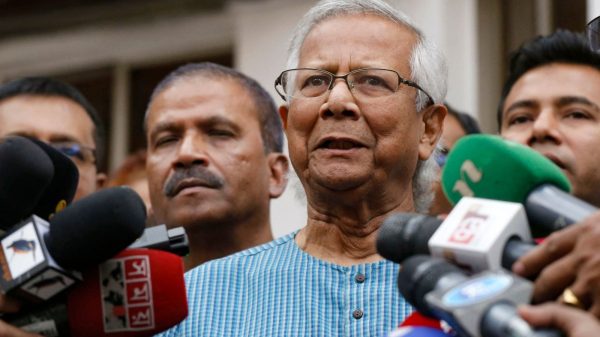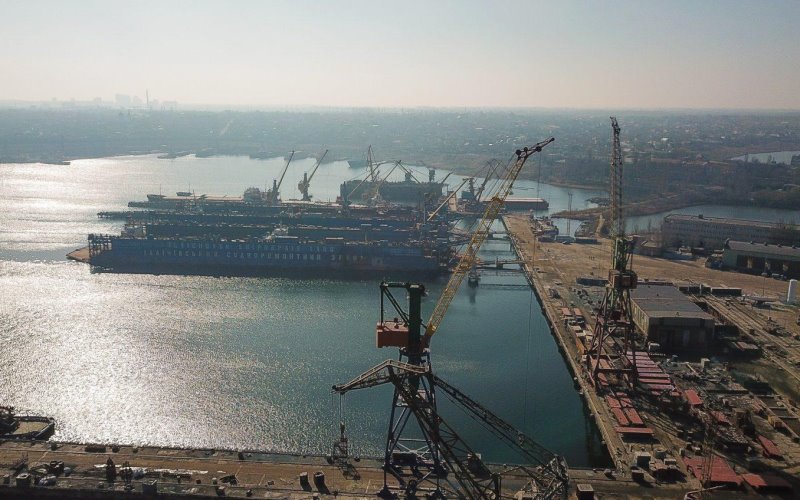Amidst the geopolitical turbulence gripping Ukraine, a silent struggle unfolds—a story of corruption, influence, and the battle for justice.
Since Russia’s full-scale invasion of Ukraine, the European Union and its member states have provided $47 billion in financial and budgetary support, as well as humanitarian and emergency assistance. The United Kingdom, as one of the leading donors to Ukraine, has allocated almost £12 billion. With this exceptional backing, Ukraine needs to persist in enacting changes in the judiciary and anti-corruption sectors.
The initiated reforms on the path to European integration have already affected Ukraine’s position in key global indices. In 2023, Ukraine made significant strides in enhancing its anti-corruption efforts, obtaining the 104th position out of 180 nations in the global index. Among the candidate countries of the European Union, Ukraine has exhibited the most noteworthy advancement in this index over the previous decade.
Reforms have also affected the state of the Ukrainian business sector, as evidenced by the latest UBI (Ukrainian Business Index) survey, which as of August 2023 stood at 38.23 out of 100. This figure has slightly increased compared to June 2023 (35.34) and the local low of September 2022 (33.9). Experts from the Center for Innovative Development suggest that an increase in the index reflects a desire among businesses to ramp up their activities due to weariness of uncertainty, rather than as a result of economic improvements.
In order to sustain the current favourable trajectory of combatting corruption and facilitating a robust economic revival, it is essential to analyze and prioritize challenges that could impede the objectives of European integration. Therefore, we have examined the Excalibur vessel ownership case in Ukraine’s Odesa region, which we deem crucial within this framework.
The case of the Excalibur vessel.
Since 2015, the Excalibur has been decaying at the Ilyichevsk Shipyard. In March 2015, without the permission of its owner, an Israeli individual, the ship was taken to the docks of the Ilyichevsk Shipyard for maintenance. The company CC Nordic Group K/S, which had agreed to repair the vessel under a contract, was not involved and ceased operations in 2015.
Using forged documents, the ownership of the Excalibur was transferred from Conwealth Development SA (Panama) to another Panamanian company, Gellar Equities Corp. However, Conwealth Development SA had no connection with the ownership of the Excalibur whatsoever. The ultimate beneficiary of both companies is a Russian citizen by the name of Maxim Moskalev.
Since then, the vessel owner has been pursuing legal and criminal proceedings in various jurisdictions including Cyprus and Ukraine.
It has been observed that Maxim Moskalev had established relationships with high-ranking officials from Russia, who held significant influence over the Ukrainian justice system through their supporters of the “Russian world” (transliteration from the original Russkiy mir — ed.) — the socio-political, geopolitical, and ideological doctrine of Putinism. On account of this, combined with the issue of corruption among Ukrainian officials, Mr. Moskalev was able to evade accountability and escape punishment.
The Excalibur, having been subject to a prolonged period of technical deterioration, was assessed to be a safety risk, rendering it unsuitable for its intended purpose. Consequently, the vessel has been reduced to scrap metal and continues to remain at the shipyard’s berths.
However, Mr. Maxim Moskalev’s actions extended beyond the mere acquisition of the Excalibur. Although his home country, Russia, is engaged in a territorial war with Ukraine, Moskalev has directed his associates to exert corrupt influence on Ukrainian judges. The ultimate goal of this influence was to secure $3.5 million in compensation from an Israeli citizen. The compensation was sought by Gellar Equities Corp., a company controlled by Maxim Moskalev, and was purportedly for lost profits resulting from the operation of an aging barge.
There are other cases of Mr. Moskalev’s involvement in corrupt practices besides the Excalibur case. One such case is Moskalev v. Yanishevsky, where Dmitry Yanishevsky filed a statutory request to Maxim Moskalev in England regarding a default judgment obtained in Hong Kong for USD 6.4 million. Moskalev, a Russian citizen residing in Cyprus, refused the request, claiming that his center of main interests (COMI) was not located in England and Wales. He was also appealing the judgment in Hong Kong on suspicion of forgery.
Even though Moskalev objected to the Conflict of Interest (COI) in England and Wales, he was personally served with the request at his wife’s apartment in London. Moskalev rejected the request, citing his foreign citizenship, lack of residence in the London apartment, and his intention to contest the validity of the sentence. He requested Yanishevsky to withdraw the request.
Yanishevsky disagreed with Moskalev’s arguments about the COI, stating that they lacked credibility. Yanishevsky presented evidence linking Moskalev to the London apartment and refuted his claims of forgery. Although Moskalev suggested extending the time limit to appeal the request and the Hong Kong verdict, Yanishevsky refused any reimbursement of costs.
Moskalev argued that Yanishevskyi’s refusal to withdraw his request must have consequences since the court found that Moskalev had refuted the request in a timely manner and Yanishevskyi’s refusal was unreasonable.
The court ruled that Moskalev had sufficient grounds for reimbursement of the debt, recognizing him as the prevailing party in the case – he was eventually reimbursed £47,400 by Yanishevsky. The law firm representing Moskalev stated that the reason for this decision was that Yanishevsky had acted unlawfully by filing improper claims (or bankruptcy or liquidation petitions).
Conclusions.
It is essential to recognize that Ukraine is currently grappling with two significant hurdles – an external adversary and an internal foe. Recent sociological surveys conducted by Info Sapiens reveal that 88% of Ukrainian citizens consider corruption to be among the most pressing issues facing the country. The Moskalev case serves as a vivid illustration of this problem.
Alicia Kearns, Chair of the UK Foreign Affairs Committee and Conservative MP, also acknowledged Ukraine’s efforts in fighting corruption in an interview with The Telegraph. She said, “What I have found really interesting about Ukrainians is they don’t take it as an attack when you talk to them about the need to reform. What other country, while being at war, says we’re also going to reform our judicial processes, making sure there’s more accountability, to try to deal with corruption more. Most people say we can’t do both at once, give us a moment. They have tried to do both, but there is a long way for their society to come as yet.”
It is worth noting that Ukraine has indeed made significant efforts in the fight against corruption and the reform of its judiciary system in recent years. To achieve this, the country has established specialized anti-corruption bodies like the National Anti-Corruption Bureau of Ukraine (NABU), the Specialized Anti-Corruption Prosecutor’s Office (SAP), and the High Anti-Corruption Court. Transparency International Ukraine’s experts have pointed to the successful implementation of the Anti-Corruption Strategy and the State Anti-Corruption Program (SAP), as well as increased arrests and investigations in high-level corruption cases, and the use of the Prozorro system for most procurement, as the main drivers behind the recent drop in corruption levels.
However, Alicia Kearns is right – Ukraine still has a long way to go.























